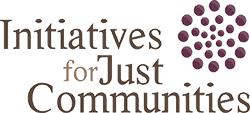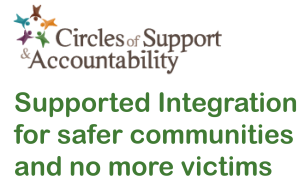Circles of Support and Accountability (CoSA) offers a caring community around people with offending histories, who are at high risk of harming themselves and others. Volunteers and staff offer a supportive space to those integrating into the community after incarceration, serving Probation or Parole, or simply feel they need additional support to live safely.
People with offending histories often experience fear and isolation in the community as a result of stigma attached to their offences. This environment of isolation is a major risk factor and undermines chances for positive growth and change. While much of society considers high risk individuals as hopeless, CoSA utilizes a strength-based approach for constructive integration, reducing recidivism rates by 72- 83%. The mantra of the program is no more victims.
CoSA’s approach is based heavily on the philosophy of restorative justice. We utilize a holistic approach, focusing on mending relationships affected by the offence, holding offenders accountable for harms they caused, and building stronger and safer communities.
At the centre of every circle is its Core Member, the individual with an offence history. Core Members voluntarily seek a Circle of Support and are included from the beginning in all decision-making regarding their safe and healthy integration into the community. Each circle consists of one Core Member, one CoSA Staff Person, and 3-5 trained Support Volunteers.
What does support look like?
- Connecting the Core Member to practical needs (i.e. access to medical services, social assistance, seeking employment and affordable housing, etc.)
- Providing a consistent network of emotional support
- Creating a safe and supportive community
What does accountability look like?
- Ensuring all actions and conversations prioritize community and personal safety
- Working to establish safe and healthy boundaries
- Encouraging honesty and transparency
- Addressing factors and triggers within offence cycles
CoSA also advocates with police, Parole, Probation, treatment professionals, social assistance networks, and neighborhood groups to best support the Core Member and the community at large.
Our community holds many qualified professionals who provide the training necessary for the success of our support circles, including Forensic Psychological Services and Klinic Community Health Centre. See below for a list of required trainings available to volunteers and supporters. We also offer numerous supplemental trainings, and are always seeking new learning opportunities to offer our volunteers, supporters, and staff.
Required Trainings:
- Introduction to CoSA
- Integration Concerns
- Understanding Sexual Assault Trauma
Participation in a circle requires a commitment of one year of weekly two hour meetings.
Volunteering is an opportunity for the community to play a direct role in the restoration, reintegration, and risk management of people who are often seen with only fear and anger.


